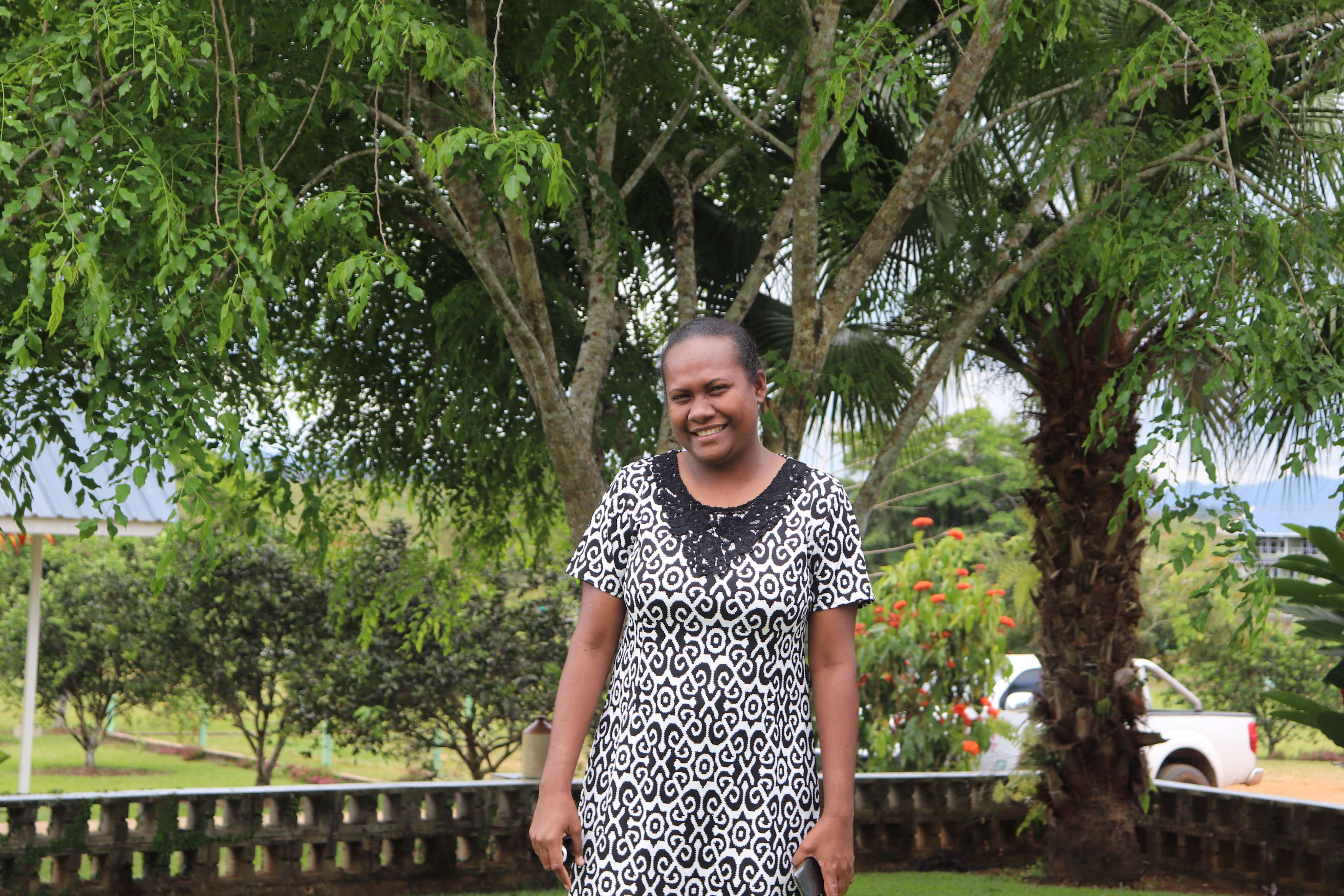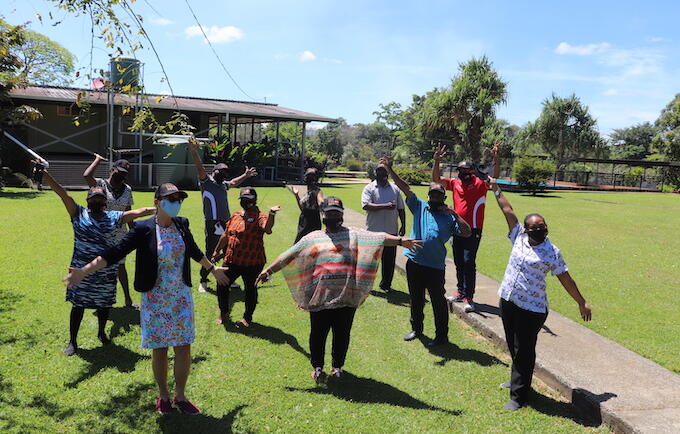Marjorie Elijah is a procurement officer with the Medical Supplies, Procurement and Distribution Branch (MSPDB) of the National Department of Health. After working with MSPDB for just one year, the challenges in connecting family planning supplies to men and women across Papua New Guinea are clear. “We don’t know the actual consumption at the facility level,” says Marjorie. “If we get that data, we can save a lot of money.”
Marjorie’s role involves procurement of all public health commodities, including family planning supplies. MSPDB then manages distribution to health care providers across the country. Currently, ordering supplies for family planning can be a guessing game and the game can be costly. All commodities have a shelf life and inaccurate data can lead to significant wastage.

To reduce wastage, MSPDB needs information on precisely what products are being used and how often. This information needs to come from health care providers. “We don’t have data on the end users,” says Marjorie. “That will determine what we actually need, not just procure anything and everything and have it expire at the warehouse.”
UNFPA is helping Marjorie and her colleagues by hosting a workshop on procurement planning of reproductive health commodities. The workshop, hosted in Koitaki, builds capacity of reproductive health commodity security and strengthening medical supply chain systems in the country. The workshop was organised after the PNG Government allocated, for the first time in 2020, a budget of US$2 million for the procurement of reproductive health commodities, following the submission of a procurement plan for reproductive health commodities to the Department of Treasury in 2019.
The team at MSPDB was joined in this workshop by health care providers who will help to bridge the information gap between procurement and end users, ensuring the new funding is spent effectively.
“We need to develop our capacity,” says Dr Edward Waramin, Manager for the National Department of Health’s Population and Family Health Service Branch. “We need a system that works effectively for us”. That system needs to bring together national planning apparatus, like MSPDB, and frontline health workers.
Emily John has joined the training as an experienced nurse and midwife. She is well aware of the challenges faced by consumers of family planning services at the community level. “Health workers need more education and information on policy surrounding family planning,” she said. “Some are yet to understand that family planning is for all men and women of reproductive age. This policy must be communicated through to the peripherals.”
In her 20 years of experience as a health care provider, Emily says attitudes towards family planning has changed. “Previously, everyone thinks it is women’s business and it is for married people,” she says. “But now perceptions have changed due to changes at the policy level.”
Even among faith-based health care providers, Emily has seen a growing openness to connecting patients with family planning services. “That’s a big change,” she says. “It’s very surprising to see that Church-based clinics advise women on family planning and where to access services, even if they don’t provide these services themselves.”
Last month, Emily facilitated training for health workers at Rumginae Hospital, Western Province, on maternal and antenatal health care. This training was part of UNFPA’s activities to reduce maternal mortality in North Fly District through greater community awareness, improved health worker capacity and better health centre facilities and equipment.
This week’s workshop in Koitaki is similarly looking to connect the links between modern family planning products and the people in need of these products, no matter how remote. The training will give participants the skills and knowledge needed to ensure high-quality family planning commodities are available in Papua New Guinea, ensure providers have timely access to generic medicines and low-cost devices, and reduce wastage.
In speaking to the team ahead of the workshop, UNFPA Country Representative Marielle Sander noted that those managing the supply chain have the “most invisible, most thankless role” in strengthening the health and wellbeing of PNG families. “You don’t get to see the garment being applied or the oxytocin being administered,” said Marielle.
“There are improvements, but we need to do more,” she says. Emily agrees that improvements in supply chain are essential for Papua New Guinean families. “Family planning is important in improving the lives of families and preventing maternal deaths,” says Emily. “30% of maternal deaths are youth and adolescents.”
Preventing these deaths is fundamental to UNFPA’s mandate in Papua New Guinea. “It’s not just about women and girls,” said Marielle. “It’s about women, girls, men and boys stepping up and taking responsibility”.


